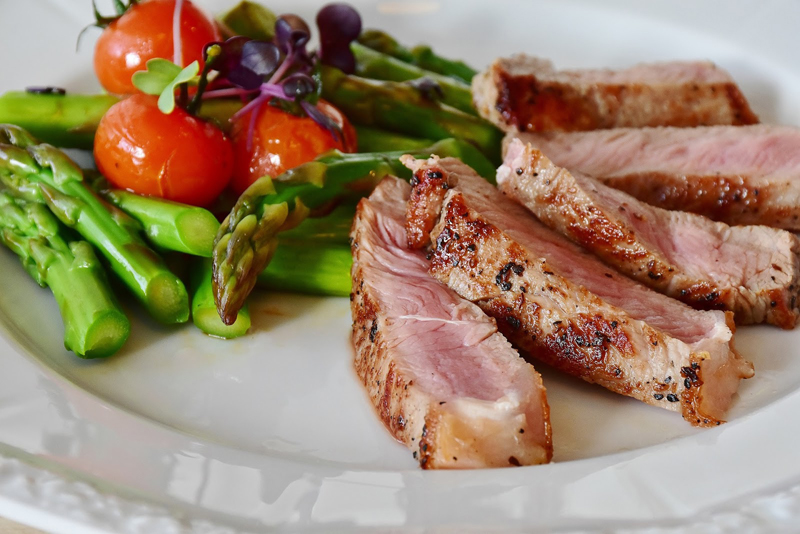
No matter how hard you work out at the gym or how often you play sports, there is no escaping a poor diet. It is only holding you back from reaching your full potential when it comes to your fitness. You will generally feel better if you eat well, too.
Of course, we all know to eat a balanced diet and avoid too much sugar and carbs, but these aren’t the only nutrition tips you should keep in mind. There are several more that can help ensure the food you are eating is improving your fitness efforts, not hurting them.
Here are some simple, underrated nutrition tips to improve your fitness and make it easier to get into the best shape of your life.
Don’t Work Out on an Empty Stomach
A great tip that often goes against what most people think is that you should not work out on an empty stomach. Many do this thinking it will increase calorie burn or improve their workout, but the opposite is often true. If you work out on an empty stomach, you may have less stamina, and lower blood sugar levels can often leave you feeling a little shaky or nauseous.
Feeling sluggish like this doesn’t bode well for a good workout. It could lead to an increased chance of injury, or simply not getting the same quality of workout that you would have if you had properly fueled up before the workout.
Of course, if you eat too much before a workout, it can also hurt your performance. A small snack before a workout to get some energy in is a great idea, but save your big meal for after (or well before) your workout. You want to be fueled well and not hungry, but also not have a stomach full of food.
Consider Keeping a Food Diary
Another nutrition tip that can help improve your fitness is by keeping an accurate and detailed food diary. A food diary is essentially a log of what you consume every day. You should record how much you eat or drink, and when. You may also choose to record how you felt before and after, or how hungry you were.
This could be kept with a physical notebook and pen, or you can keep track with the many apps available that provide this service. Often, we underestimate how much we are eating, so food diaries can help you track calories, water, protein and more, to help you understand which areas of your diet need improvement.
When using a food diary, do your best to be specific to make for easier tracking and simpler reference in the future. No matter how small a meal or drink is, it should be recorded. For best results, write in your diary right after you eat the food, to prevent yourself from forgetting. Be sure to look over your diary every week or so and make sure you aren’t noticing any troubling trends.
Try To Avoid Drastic Diets
In an effort to lose weight quickly and rush toward the result you want, you may be considering an extreme diet. These fad diets, also called crash diets, involve dramatically cutting your calories and restricting what you can eat. However, generally, these aren’t a good option and should be avoided for most people.
First of all, the results don’t last. While you may lose weight in the short-term, these results are incredibly difficult and uncomfortable to maintain over time. If you try and stay on one for months on end, you are likely to be hungry and miserable.
Many of these diets are also expensive, especially if you need to purchase pills or supplements. Some of these diets can also have adverse health effects, such as a loss of muscle mass, depending on what they require you to do.
There is no instant way to get fit, it takes hard work and dedication. Instead of simply cutting what you eat in half and avoiding certain foods, maintain a balanced diet rich in fruits, veggies, protein, and grains. A few snacks and cheat days here and there are fine as well, but try to keep them to a minimum.
Drink Up
While we primarily think about food when talking about nutrition, what you drink is also incredibly important. You need to drink plenty of fluids throughout the day, especially if you are physically active. If you get dehydrated, your muscles are not getting a proper supply of nutrients, which can be harmful.
Most people should be getting at least eight glasses of water every day, but this can depend on your weight and physical activity levels. During workouts, it is important to take periodic water breaks to keep your body in the well-hydrated for your workout.
If you struggle to get enough water, keep a reusable water bottle filled up and nearby at all times, even when you are at home. Not only is it more affordable than bottled water, it is easier than having to constantly get up and fill up your cup.
Taking Your Nutrition To the Next Level
While exercising is important to your fitness, so is nutrition and what you eat and drink. By following the tips outlined here, you can ensure that your nutrition is helping – not hurting – your fitness goals and aspirations.
Comments
comments